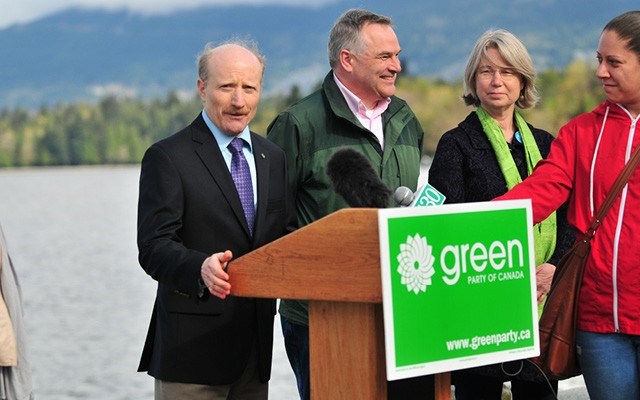In the wake of a tanker fuel spill in Vancouver's English Bay, politicians are looking on the bright side — though they may disagree on what that is.
"We're really fortunate that this was a small spill," said Ken Melamed, former Whistler mayor and Green Party candidate in the West Vancouver-Sunshine Coast-Sea to Sky riding.
"It really shows how accurate the criticisms have been on the progressive cuts by this Conservative government. People have been warning since they began closing down lighthouses on the coast and cutting Coast Guard services that it was insufficient, and going around the riding and listening to the comments at the open houses on LNG, there's just a general sense that Transport Canada does not have an appropriate disaster response program in place.
"The upside of this spill is that it wasn't major, and it was, I think, a really good wake up call."
But for MP John Weston, the upside was the very response that Melamed deems insufficient.
"We saw some very efficient response in that within 36 hours 80 per cent of the spill was recovered," Weston said. "We're now hearing that 95 per cent or more has been recovered and that there is less than 0.3 litres in the water, and the source of the pollution is contained."
While it was announced in February that three Coast Guard marine communications centres on the West Coast — in Vancouver (May 6), Comox (2016) and Ucluelet (April 21) — will soon close, Weston said that the cuts were in relation to back office personnel.
"While there were cuts all across government as part of the deficit reduction action plan, the cuts to Coast Guard personnel in B.C were five per cent with a focus on back office cuts," Weston said. "So those were minimal, and there was no impact on the environmental response team."
Melamed said that if elected, the Green party would work to tighten up regulations and better fund disaster response.
"We have shipping and we will continue to have shipping, and in managing that industry there needs to be appropriate and well-funded disaster response," he said.
But incidents like this might make governments take a second look at increasing tanker traffic on Canada's coastlines, he said.
"There are serious concerns about this. People don't want to take this risk," Melamed said. "The rewards are not worth the risk and we have other ways of building a vibrant and a prosperous economy."
One of those economic alternatives — B.C.'s tourism industry — is one area where the two politicians are in consensus.
"We attract the world's attention not only through our assets but the way we respond to our challenges in Canada, and people around the world are hearing that Canadians seek world-class safety regimes in their maritime transport while we have world-class tourism assets," Weston said. "We're still the best place in the world to come and visit, and we still live in the most beautiful place on Earth, and that's something I'm committed to sustain."
But tourism — which could be greatly impacted by oil spills on a larger scale — benefits more than the economy, Melamed said.
"It's also critical to the daily life and the quality of life for the people that live here, and let's not forget how important that is to the economy," Melamed said.
"Peoples' sense of quality of life and security is integral to the creativity and the attractiveness of south western B.C. as a place for businesses to locate and create jobs."




